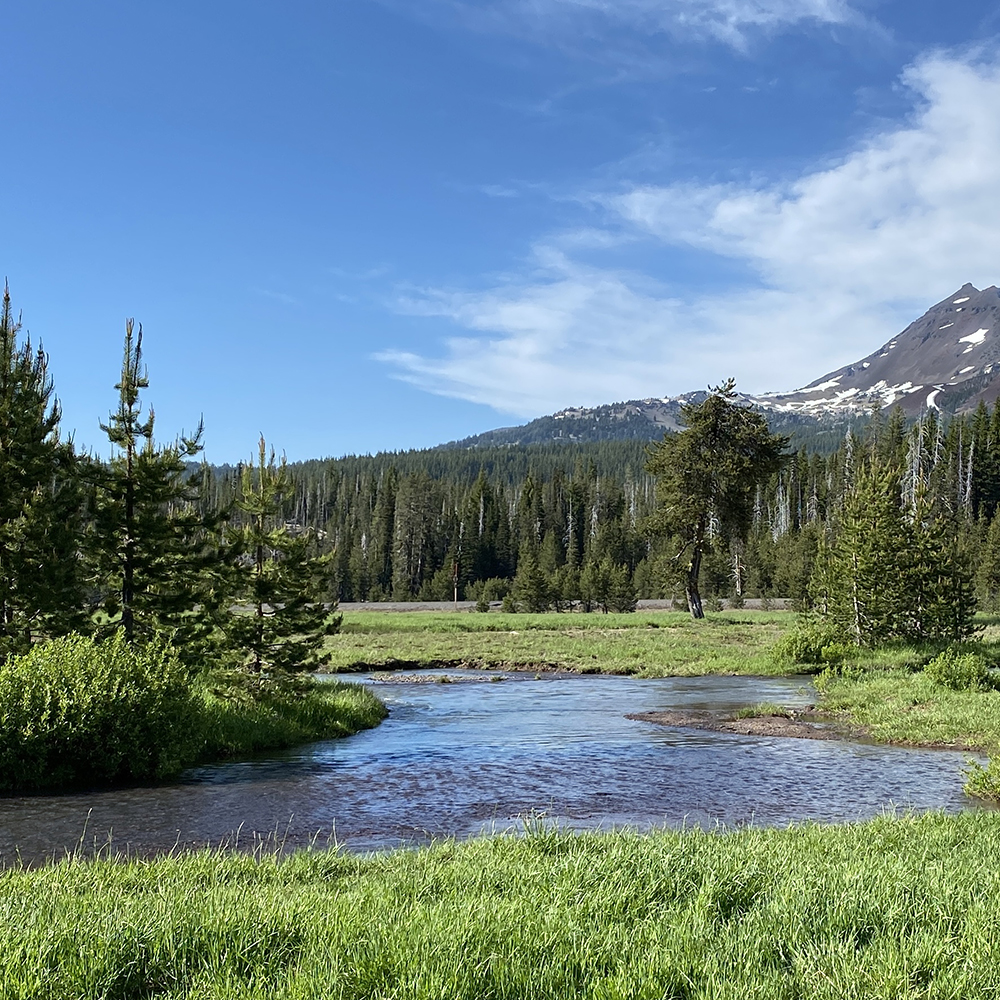Some might recall the “Redwood Summer” of 1990, when “thousands of environmentalists” gathered on California’s North Coast to protest a timber harvest.
“They blocked roads, sat in trees and chained themselves to logging equipment to halt old-growth cutting,” recalls High Country News.
There were also “shoving matches, screaming confrontations and fistfights between activists and timber workers.” So … maybe not “fiery,” but a “mostly peaceful” protest?
The Los Angeles Times had a man on the scene who described “a small band of students, retirees and full-time environmental activists organized by the radical Earth First!” They “responded by trying to inhibit the harvest by using civil disobedience, backwoods confrontation and conventional protest.”
“With equal measures of guerrilla theater and guerrilla war, Redwood Summer saw as few as one and as many as 1,500 activists dress as owls and sing protest songs, chain themselves to heavy equipment and block logging roads, suspend themselves by wires above state highways and stand between angry tree fallers and ancient redwoods.”
So trees are important to environmentalists. Sort of. Or maybe not. There seems to be no “Joshua Tree Summer” coming up to protect century-old growth that’s being cleared in Kern County to make space for a 2,300-acre solar farm. Apparently it’s OK to chop down trees to lay in solar panels but not for timber that would be used to build homes and furniture.
The trees that will be sacrificed near the city of Boron number about 4,200 and are protected. While there’s been some unease locally – concerns about the dust that will be kicked up during construction and disturbances of endangered tortoises – there’s been no mobilization of eco-troops to tangle with the crews that will install the panels.
Now if it were a nuclear power plant being built instead, the screeching would be heard all the way to Sacramento, even though a nuclear plant would provide the same amount of electricity – enough to light 180,000 homes in the wealthier coastal neighborhoods where the power is going – on 46 acres rather than 2,300.
Locals are also a bit confused, as are many others, as to how this project makes sense if the goal is to protect nature.
“Let’s destroy the environment to save the environment. That seems to be the mentality,” Deric English, a teacher at Boron Junior-Senior High School, told the Times. “It’s hard to comprehend.”
Or as the Times reporter Melody Peterson puts it:
Although solar and wind fields are expected to help mitigate climate change, they are also tearing up undeveloped land, harming threatened plants and wildlife and causing concern in nearby communities, which are often small and far from the state’s cities.
She’s on to something. The coastal elites (and lawmakers) that agitate for renewable energy tend to be less concerned about the environment “over there” outside of their well-guarded bubbles. Usually it’s on a larger scale. For instance, when the “over there” is in a different country if not hemisphere, they don’t care as much about oil and gas extraction. They want the industry shut down in California but are not all that interested in what happens in other nations where the stewardship of the environment is inconsistent if not reckless.
There’s a similar insouciance in regard to mining: California’s rich progressives don’t seem to mind dirty mining elsewhere as long as it provides the needed raw materials to make their iPhones and electric vehicle batteries.
Does the “over there” attitude make it acceptable to “destroy the environment” in what amounts to California flyover country in a corner of Kern County that few if any coastal elites will ever visit? Seems to be a high price to pay for some easy virtue-signaling, but then they’re not paying the price. It’s loaded on the backs of the locals, who as English said, “don’t have political power” and “just get ramrodded over.”
Kerry Jackson is the William Clement Fellow in California Reform at the Pacific Research Institute.

